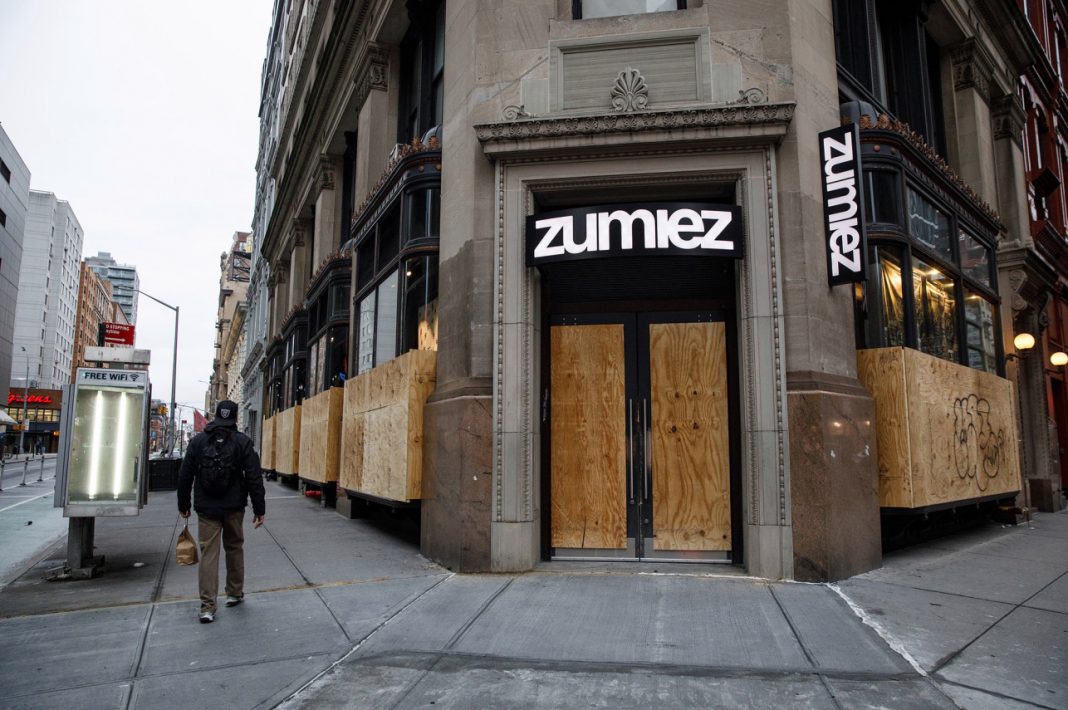Anyone entertaining the idea that businesses should move toward reopening is shamed as caring more about the stock market than people dying. Any discussion of how to get people working again is met with people smugly screaming “stay home!” at each other.
I am staying home, along with my whole family. We’re collectively taking COVID-19 very seriously. We’ve been in self-quarantine since March 13 — before restaurants and bars in the city were shut down, before Mayor Bill de Blasio finally closed city schools and days before his last trip to the gym.
All that to note that I’m no COVID-truther who thinks this is no big deal — it’s a very big deal. But looking ahead, figuring out a way to get people back to work has to be permitted. In fact, it’s essential.
It’s hard not to notice that many of the people shrieking and shaming are still employed. What about all the people who don’t have any money coming in for their families? We need to figure out the path back for them.
Businesses can’t open tomorrow or next week. But how do we get our city working again?
Must it be all or nothing? Can some businesses take proper precautions and reopen sooner than others?
De Blasio has to stop taking to cable news shows to be a foil for President Trump and actually get to work on this. Reopening New York can’t be done with blanket policies. We won’t one day flip a switch and have our businesses open again.
Rather, we’ll have to take businesses on a case-by-case basis. We’ll need a mechanism for them to explain how they’ll take proper precautions and then petition to open.
There is currently no way for a business to argue that it should be allowed to function. For example, in Gov. Cuomo’s directive to end non-essential construction, an exception is made for work done by “a single worker, who is the sole employee/worker on a job site.”
What about a job that requires two workers who can stay six feet apart? There has to be a place to appeal for an exception.
Another example: Gyms. Some may be able to reopen ahead of others. A franchise owner at Orangetheory Fitness told me the company “invested in electrostatic cleaning sprays to disinfect between classes” and that its equipment is three feet apart, so clients could use every other station to maintain the required six-foot distance.
Could all gyms do that? Probably not. But why must they all remain shut if some can function safely?
A lot of owners of non-essential-businesses point to so-called essential businesses like liquor stores and movers and wonder why they are exempted. Grocery stores are necessary, but one owner points out that while shops may limit the number of customers entering, “once in the store, social-distancing rules start to break down.”
City Councilman Mark Gjonaj (D-Bx), who chairs the Committee on Small Business, told me of his constituents’ pain. “We often separate the employer from employee,” Gjonaj said. “I have received so many calls from employers crying and saying they can’t sleep at night because they have to let employees go. That bond is a family unit in a small business. They spend more time together than they do with their families. There’s a lot of pain and agony.
“Every government agency and department should be doing their part to think about how to save the small businesses that were the American dream,” he added. “People went into their fields as the employee and became the employer. We need support for them.”
Indeed. People are hurting, and they need hope. More than that, they need to see elected officials coming up with ideas to get them back to work. Those of us lucky enough to still be working need to speak up for those who are not. We need a plan to move forward to better days, and we need it now.






























